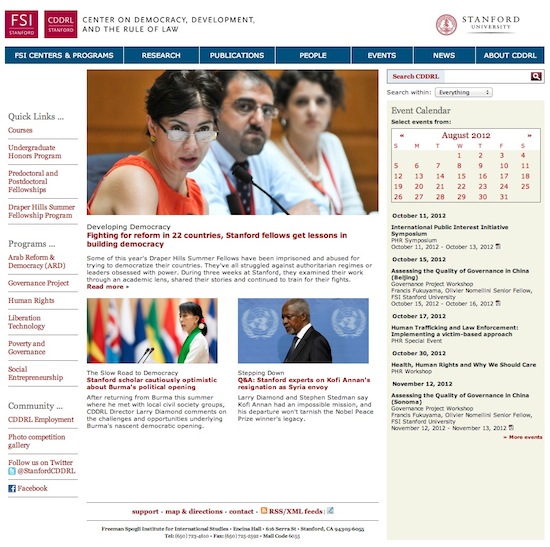Stanford University’s Center on Democracy, Development, and the Rule of Law together with the Foreign Policy Studies Program at the Brookings Institution and Google.org, convened a two-day workshop to advance strategic thinking on how to leverage new technologies to strengthen U.N. human rights monitoring around the world. Bringing together a small group of United Nations Human Rights Council mandate-holders, leading civil society activists, government representatives, and technologists working at the intersection of technology and human rights, the workshop developed concrete proposals for how technology platforms can be used to amplify the voices of mandate-holders, broaden their engagement with activists and citizens globally, and increase the awareness and impact of U.N. human rights monitoring mechanisms.
Sanjana Hattotuwa represented the ICT4Peace Foundation at this meeting. The full workshop report is now available as a PDF.
As the report avers at the end,
It was agreed that the technological expertise required to build and sustain technological platforms in support of U.N. special rapporteurs exists and that potential sources of funding could be cultivated. It will be critical, however, to identify a procurement process that enables the OHCHR to partner with innovative technologists, rather than the large firms that generally bid for U.N. contracts. For example, funding could be provided through the U.N. Foundation to support such an effort, which might create more flexibility to partner with a smaller, more innovative firm. The group also recognized that the OHCHR could draw on voluntary efforts including Coding for Social Good and the philanthropic work of Google’s engineers to identify individuals who could lend their technical expertise.
Of course, new technologies will not be a panacea to address all the challenges of increasing the efficacy of the U.N. human rights monitoring mechanisms, and they will not eliminate the need for greater financial resources and human capital to support special rapporteurs. There was consensus, however, that exciting possibilities already exist for harnessing new technologies to support the work of mandate holders, as well as a committed core of technologists and human rights activists who are willing to advance that effort.

